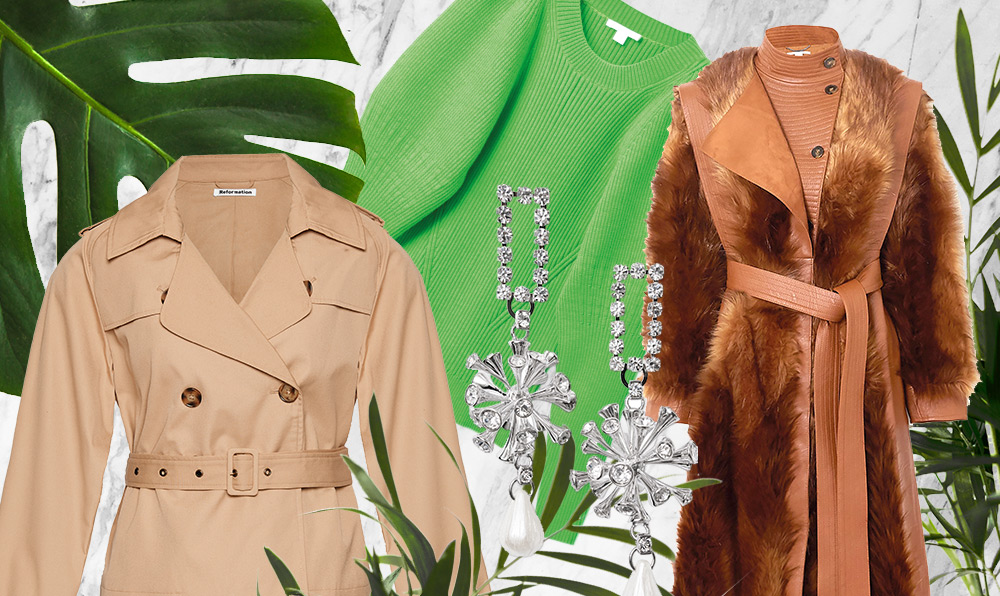
Fashion With A Conscience
Fashion With A Conscience
Fashion labels, high end and high street, are taking sustainability seriously. We take a look at who is the leader of the fashion pack when it comes to going green
With the world rightly in fear over our planet’s future, the ‘Climate Crisis’ has prompted a wave of global change in the fashion industry, where waste, chemical usage and greenhouse gases are just a few of the issues to be tackled.
Undoubtedly the designer at the forefront of change, and a pioneer in the world of luxury fashion is Stella McCartney. Her eponymous label has been focused on creating responsible luxury from the getgo, using recycled and upcycled materials in addition to developing her own such as faux-fur from corn, spider silk and mushroom leather, all without compromising on beautifully crafted designs.
In August 2019, super-brand Prada announced it would be joining the G7 Fashion Pact in a move to level-up its sustainability practices. November saw Prada become the first luxury brand to sign a green loan – tying it in to a deal that means it will face financial consequences if it doesn’t meet its eco-targets. Prior to this, the brand reflected on its design past with the launch of the Re-Nylon range and made the decision to use only recycled nylon by year-end 2021, which has resulted in a resurgence of the brand’s popular nylon styles.
For ethical designs at a more affordable price tag, high-street retailers H&M and Zara have both set out their visions for the future with a focus on producing products responsibly.
At H&M Group, the key target is to create a circular and renewable industry, looking specifically at its social and environmental impact and constantly developing its practices to ensure its products are made fairly and with concern for the climate. Get involved as a shopper, and take your damaged clothing into store to be repaired at The Renewal Workshop partnership between The Laboratory and COS.
Last year Zara announced a new set of targets, entirely focused on making Zara fabrics 100% sustainable by 2025, as well as eradicating single-use plastics, creating green-only packaging solutions, and using 80% sustainable energy in its offices, industrial spaces and stores. While the fashion powerhouse works towards these goals, a ‘Join-Life’ collection has been released, signifying to shoppers the products that have been made with reduced environmental impact.
Cult LA brand Reformation prides itself on producing with the aim to bring ethical fashion to everyone, and strives to make its production cycle as transparent as possible. In addition to doing as much as it can to limit its footprint, the brand offsets the rest to ensure its party dresses, mix’n’match separates and all other offerings are “100% neutral”. Look out for its RefScale, which indicates the environmental impact of the garment.
A truly sustainable way to get your fashion fix is through shopping second-hand. In recent years, the likes of What Goes Around Comes Around and Vestiaire Collective have proved that luxury resale works incredibly well as an eco-friendly formula and a way of driving down demand for newly made products. Fashion-lovers can source unique gems or sell items from their own collections to ensure further use of their unwanted products.
The developments from these brands and many others shows how eco-fashion, a word which once conjured up thoughts of ill-fitting silhouettes in drab colours, has become a necessity at even the most stylish of labels.






